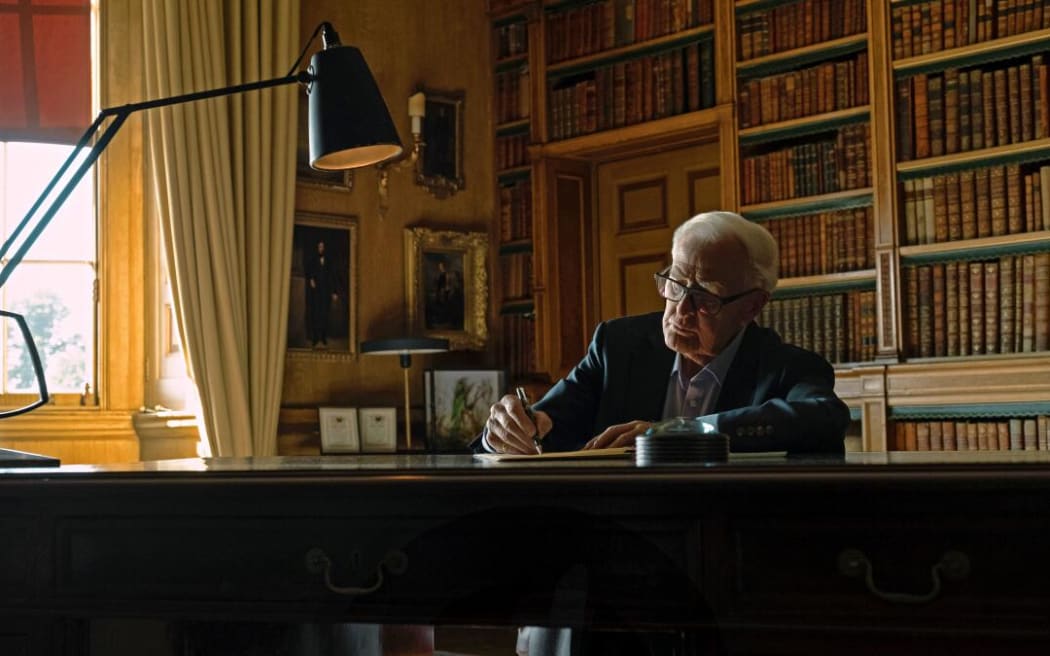In The Pigeon Tunnel one of the great documentary interviewers takes on one of the great obfuscators, a professional yarn-spinner who has survived interviews for sixty years by relying on some well-rehearsed anecdotes and carefully contrived contradictions.
The filmmaker is Errol Morris, famous for his cross-examinations of characters like Stephen Hawking, Donald Rumsfeld, Robert McNamara and Steve Bannon. Also, topics as diverse as pet cemeteries (Gates of Heaven) and the abuses at Abu Ghraib prison.
At one point in the early 80s his film career stalled and he made a living as a private investigator and he still brings that tactical ingenuity to bear on his subjects.

Photo: Apple
A good foil then for the spy novelist John le Carré, real name David Cornwell. In 2020, Morris arranged a series of interviews with Cornell who was then 89 years old. The interviews were his last. He died in December 2020.
Cornwell had been a spy for MI6 in Berlin in the early 60s, and left the service disillusioned by the number of Nazis he saw walking around on both sides of the Berlin Wall, their freedom undisturbed because the world had moved on to another, colder, war.
He took up the pen and, with The Spy Who Came in From the Cold, began a series of novels that for many people are the perfect spy stories, a long way from the glamour of James Bond.
Le Carré’s spies are often morally dubious, damaged people, and in The Pigeon Tunnel, Cornwell talks about the attraction of betrayal, the addiction of duplicity, that feeling of being at the centre of something when you are really just a pawn being moved randomly around a chessboard.
It takes a certain kind of broken person to become a spy, he argued. Someone whose character didn’t line up with regular society but who still had a desperate need to belong to something.
Turns out he was describing himself.
Cornwell’s father Ronnie was an inveterate confidence trickster and minor criminal meaning that the family was always broke, often on the run, but – as young David found out – giddy with the excitement of it all.
Unlike his father, Cornwell eventually made good use of his imagination and his ability to read people. He estimates that Ronnie spent about seven years in jail during his lifetime.
Cornwell in the film is a charming rogue in his own right. He professes to be there to tell the whole truth – I’ve nothing to hide at my age – but then makes sure that certain personal topics are off-limits.
The business with his father has been well-traversed over decades of interviews and many of those stories are now polished to a shine but Morris perseveres and eventually makes a breakthrough, some real emotion emerges behind the glint of a storyteller’s eye.
Morris is a frustrated director of fiction and he can’t help but theatricalise everything. Music, recreations with actors, in some cases recreations of things that never happened, tricks of memory. One of the backgrounds of a Cornwell interview features bizarrely angled mirrors as if bringing to life his fractured psyche.
I love this but for some it might be too much, especially when Cornwell’s mellifluous voice is already so easy on the ear. And the film leans a lot on the books and the BBC television adaptations of them which just makes you want to sit down and watch them all over again.
Cornwell is insightful about other men – his opinions of women go mostly unremarked – but rather less so about himself. I don’t know what love is, he says when he’s asked whether he loved his father. He has obviously spent far less time interrogating himself than he did his cold war targets or the creatures of his imagination that filled his wonderful books.
The Pigeon Tunnel is rated M for dangerous behaviour and violence and is streaming now on AppleTV+.

